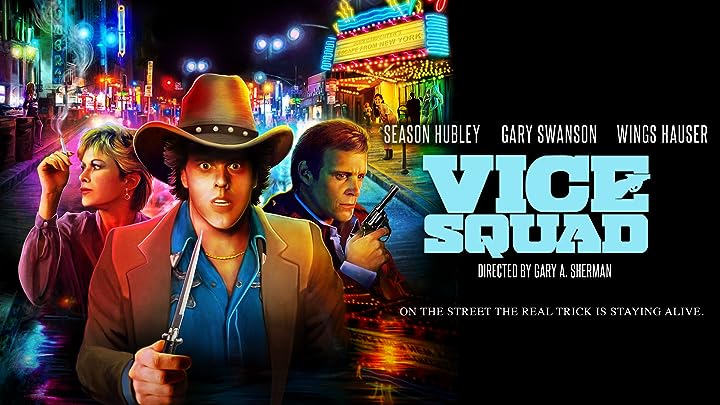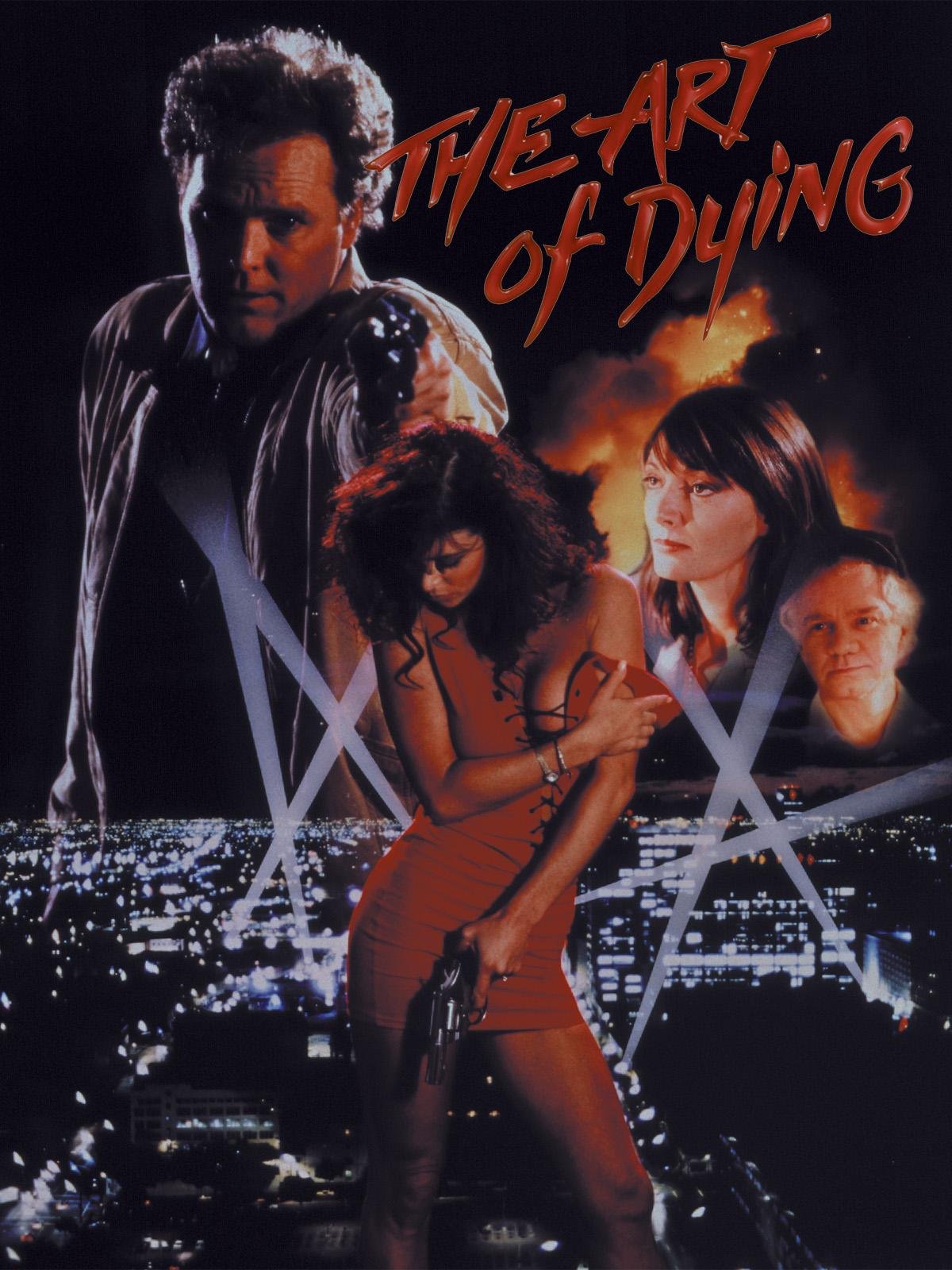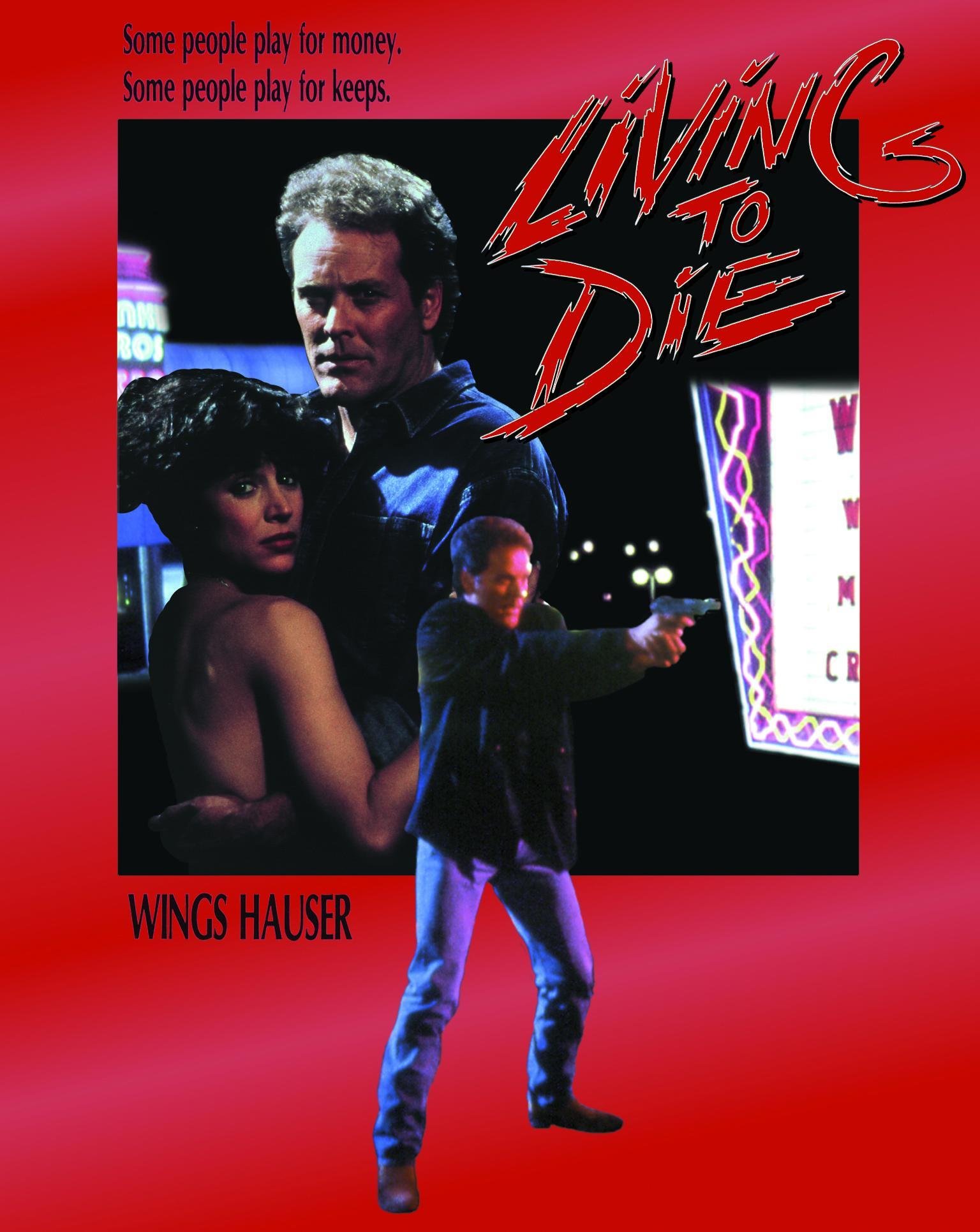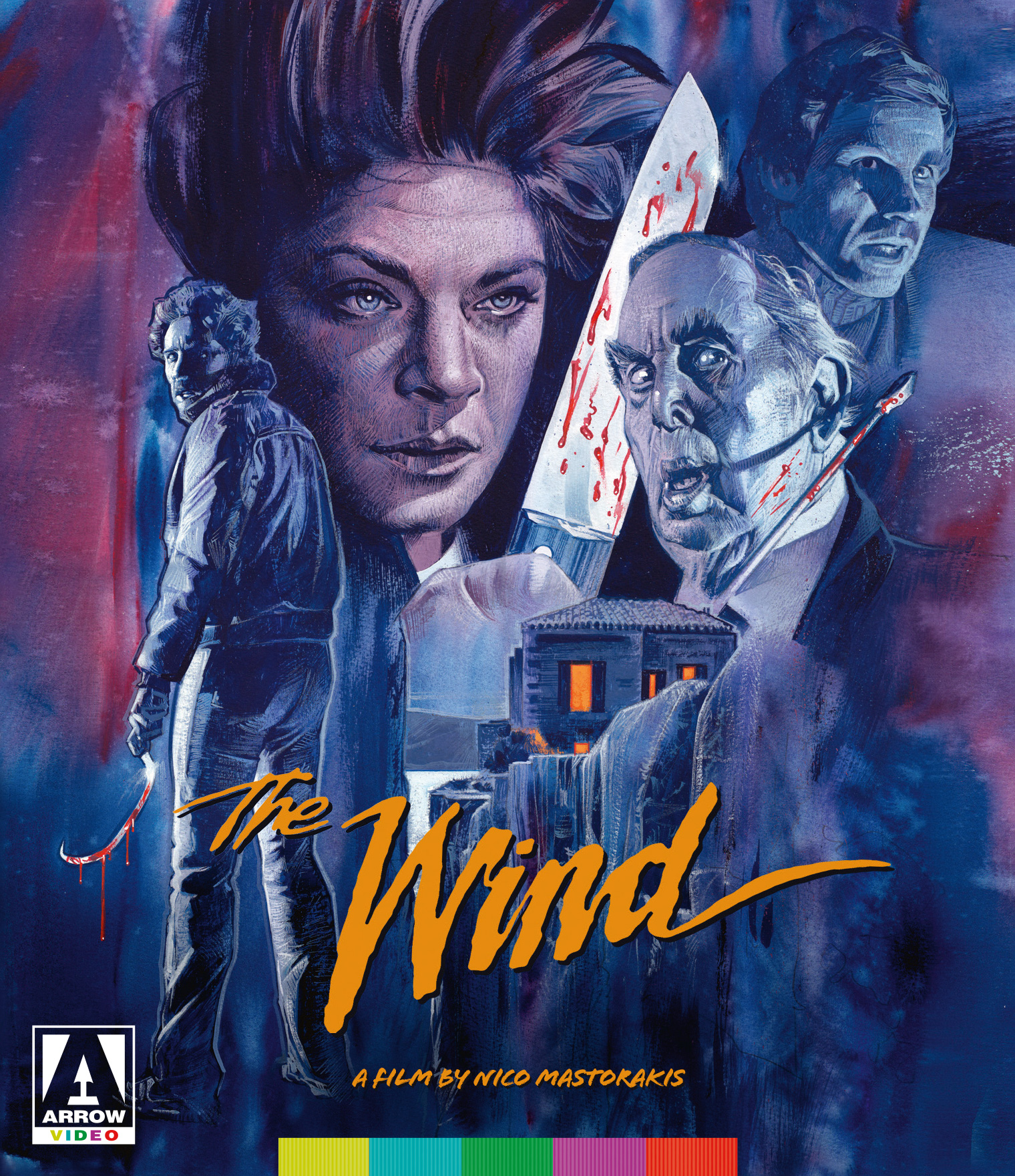Currently in the crowd funding stage, the documentary Wings Hauser: Working Class Actor from writer / director Steve Mitchell is going to be the ultimate love letter to one of the best and most indelible tough guy actors in the biz, having starred in hard hitting films such as Vice Squad, Deadly Force, The Art of Dying, Living to Die, and many more. Mitchell, whose previous doc King Cohen put the spotlight on beloved exploitation filmmaker Larry Cohen, took a break from working on the film to discuss Wings and the process of honoring its subject in the best way possible.
The ultimate, obvious question would be why do a documentary on Wings Hauser? What was the seed or the genesis of the project for you?
Well, where it came from is we have a movie night at a friend’s house, Matt Verboys, who was the producer of my last documentary about Larry Cohen, King Cohen. It’s a group of regulars. One night, we all decided to watch Vice Squad, which had just come out on Blu-ray from Shout Factory. One of the guys who was part of the group, a screenwriter, a guy named Cy Voris, had never seen Vice Squad, so we knew he was in for a treat. If you’ve seen Vice Squad, you know that Wings is the standout.
Ramrod!
Yeah, Ramrod. What happens is he makes the kind of impression on the audience that Alan Rickman made in Die Hard. Who is this guy? It made an impression on Cy, who had probably seen Wings in other movies, but he really made an impression on him this time. Vice Squad is really the defining, coming out party for Wings as an actor. He said, “We should watch more movies with this guy; he’s great! That was fine by the rest of us, but then COVID happened. From there, we were trying to figure out how to stay sane when we were all imprisoned in our own homes, and my King Cohen producing partner Matt Verboys had suggested that we do a movie club / book club kind of thing with Wings Hauser movies. We would find a movie that we could all watch independently and we would all Zoom on a Friday night and talk about the movie, and usually there would be some alcohol involved, but at least it was a social event. We had some fun. We did this for about a year during the height of COVID. Cy’s wife, who used to be an agent and was also involved in casting at some point, said, “Wings should really be told about this.” She knew a casting director who knew Wings’ manager. They sort of set up this group call with Wings, and Wings is maybe not a 21st century guy when it comes to technology, and he called Cy, and then Cy held up the phone to his microphone on his computer, and we had this very interesting group call. He was fun, he was funny, he had some great anecdotes, and this tremendous recall of all of these different moments of his career. So, long story a little longer, I had this notion: Is there a movie about this guy? That became sort of our guiding light with Larry Cohen on our King Cohen movie. Larry turned out to be such an interesting guy. We had the same feeling with Wings. Matt said to me, “Is there a movie about this guy?” I figured I should meet or talk with him again, but I had the same thought. Fast-forward, we had an in-person meeting with him at a studio in Manhattan Beach. We sort of went through all the COVID protocols and talked to him for another hour and a half. He was great. He was really interesting. He basically came up with the title of the movie in casual conversation. He said, “I’m just a working class actor.” I immediately knew that was going to be the title. You know it when you know it. We talked about it some more, and we all agreed, and we pitched it, and Wings said, “Sure.”

How many sessions did you have with Wings? How far did the project sprawl with just Wings?
Well, we did a lot of homework. We’d already done a lot of homework with a years’ worth of Friday nights of Wings movies. So, what was interesting was that his dad, along with Kurt Russell’s dad, along with some other people, built a theater in Thousand Oaks. It’s called Thousand Oaks Playhouse. They built it way back in the day when Thousand Oaks was not a suburb of Los Angeles, but more like the boondocks of Los Angeles. Thousand Oaks was a town west of the famous San Fernando Valley, and that is often times where a lot of movies and shows would go if they needed to be in the country. A lot of westerns were filmed out there. Wings’ dad was a screenwriter. Kurt Russell’s dad was Bing Russell, another working class actor. So we had access to that theater, and we had Wings in that theater and I sat down with him for hours and hours and hours. We had four sessions, which was a lot of time. What I do as a filmmaker and as an interviewer is I go in with a lot of prep, but I’m listening for answers that I can spring off of. Sometimes the follow-ups are way more interesting than my prep. He was good-natured, he was cooperative, he was very frank, and we got hours and hours and hours of great stuff. What was great about it was that we didn’t have to worry about COVID so much because there were just no people involved. It’s a great setting. When you’re doing a story about a working class actor, it’s great to have a theatrical setting. It’s nice production design. Sometimes real life can provide the best production design.
Now that you had the framework to build your documentary around, you were able to go after some other subjects to fill in the gaps and compliment his stories. Give me some examples of some subjects you went after because of the responses you got from Wings.
That’s a two-part answer. We’re still going after people. Largely, because when we were going after people, COVID was still in the air, dare I say. What happened was, we got at least a dozen people. I’m one of those guys who thinks we can never have enough stuff. There were other people we want to interview. Because Wings had done a bunch of stuff for PM Entertainment, we wanted to talk to Joseph Mehri, because Joe was also impressed by him as an actor, but because Wings directed some movies there. That was a very significant thing. The whole direct-to-video market was a real major portion of Wings’ career. He was a video store movie star. Joe was important. Frances Fisher was in Tough Guys Don’t Dance, and she was in some other movies with him too. She’s a fantastic actor too. We talked to some of his co-stars from his PM days like Kathleen Kinmont and Darcy DeMoss, and I think there was some very serious romance there between Darcy and Wings, so that was important and made an interesting portion. We got Ernie Hudson, who did a movie called The Last Precinct with Wings. We talked to Alexandra Paul, who was great. We talked to one of the producers from Beverly Hills 90210 because Wings had a recurring role on that show that was fantastic. We watched some of those episodes and wondered why his character didn’t launch into his own series. We talked to Ed Zwick, who did a student film with him. We talked to all these people, and there’s not a right way or a wrong way to do this, but we wanted to talk to people with a POV that might shed some light on that time, that era. There are other people we want to talk to. There are some “B” guys that Wings has worked with like Jim Wynorski, who’s a friend of mine. We just haven’t done it yet.

Wynorski did Victim of Desire with Wings. I recently saw that.
Victim of Desire! Yeah. For what it is, it’s pretty good. It’s one of those Basic Instinct type of movies. It was very big on cable and video because of the sexual content. This was before the internet became the place to go for sexual content.
Wings also did Bedroom Eyes II, right?
Yeah. It’s impossible to keep any of the titles straight because they’re so generic. But, anyway, it was a subgenre, and Wings worked in that. TV is also an interesting area. Believe it or not, Wings was on Murder She Wrote four times, and he loved working on that show. I want to talk to somebody from that show. The thrust of this documentary is here is this guy who started in soaps – and we talked to one of the soap producers – who went into television and started doing film, then became kind of a movie star on home video, and then did “A” pictures and lots of “B” pictures and a lot of guest star work on TV. He had a very interesting canvas of acting jobs over the course of decades. In a sense, I think he’s had the sort of career that any actor would like to have. He also had a lot of adventures off shore, out of the country. I will be honest and say that a lot of the movies aren’t that great. But the constant – the one constant – is he’s always interesting. He’s always totally committed to the project. Whether or not the movie cost 300K or 30 million, or whatever. He’s always interesting, he’s always good. He always shows up to work. He was an athlete. He wanted to have a career there, but he banged up his knees and he couldn’t really play. There’s a sportsman there. He says, “I love playing the game. I love being in the field.” That kind of enthusiasm for the work, despite the ups and downs, is very interesting. There’s a story to tell here.
I’ve got to ask because the movie has a cult life all on its own: Did you ask him about Geteven, the John de Hart movie?
We talked about it. Trust me, we talked about all of them. We’re going to try to get John de Hart if we can because that movie is from another planet. It’s an interesting movie.
I’ve been to John de Hart’s house. That guy is a character. I know for a fact that they shot a lot of that movie at his house.
I’m not surprised.
You’ve got to get him for sure.
Part of Wings’ story is he tells all these stories about filmmaking, and John de Hart was … I don’t think John de Hart can happen in today’s world. But at the time, there were a lot of John de Harts. He’s notorious because he decided he wanted to be a movie star on top of being a producer.

What are your favorite movies with Wings? What’re your top few?
I don’t know what to make of Tough Guys Don’t Dance. It’s too interesting to be just ignored the way it was at the time. I really like The Art of Dying. I like the sort of stuff he directed. Some of it is successful. The Art of Dying is really good. He also did a movie where he plays a P.I. in Las Vegas. The name escapes me …
Living to Die.
That’s correct. When it was all said and done, it was really good and a bit surprising. When you watch direct to video movies, what they are is genre exercises. They have a certain amount of sex, a certain amount of gunplay. A certain amount of this and that. But that one, like The Art of Dying, are a little different and a little surprising. He was a good bad guy in L.A. Bounty. He also did one where George Chakiris was a vampire.
Oh, Pale Blood.
Yeah. I thought it was real interesting. Sometimes the movies may be forgettable, but Wings is always so good. We would talk about them after we would watch them and always say, “Wings was really good in this.” In The Carpenter, Wings was almost in a movie all on his own. That movie is so bizarre.

Or The Wind. I remember him in The Wind.
That’s an interesting movie too. I think that is almost like a legitimate, real movie.
I like his TV work. He did an episode of Hunter, and he was great in that. Hunter was a show I watched with some regularity. I wasn’t married to it, but if it was on, I would watch it. There was one that he was in, and I thought he was one of the best “knowns” on the show. He also did an episode of Walker: Texas Ranger that he was great in. It’s hard to say. He’s really great in that Michael Mann picture that Russell Crowe was in.
The Insider.
Thank you. Wings was really good in that. He shows up and kicks the chairs out of the way. Metaphorically. He says, hey, “I’m here, and I’m gonna make the most of it.” But that’s the thing. That’s what Working Class Actor is about. It’s about a guy that … a lot of actors show up for the paycheck, and they are professional. I never felt like Wings was acting for the paycheck in any of his movies. I also like Deadly Force, one of his first starring roles. He’s really good in that. He proves that he can carry the movie as a hero. Let’s face it, he’s done the good, he’s done the bad, and he’s done the ugly. Wings shows up. We can all do documentaries about big stars. But the appeal of directing this was to do a story about a guy who loves to work, who loves to act. He also had personal bumps and demons along the path, but that never got in the way.
How far off is this movie from being finished?
I would say, we’re probably between 4-6 months. It depends on how long we have to wait for people. We’re still trying to get Michael Mann. He didn’t say no. He didn’t say yes. Sometimes you have to wait. We’re editing, we’re putting it together. We’re figuring out the narrative. These things have a tendency to accelerate like a train going down a hill. We’re still hunting for some more interviews. We’re working on the spine. We have an idea what the spine is. We’re building on the spine, and then we’ll have a rough cut.
Thanks, Steve. I’m looking forward to it.
Thanks, David.
Check out the Kickstarter Page for the film:






